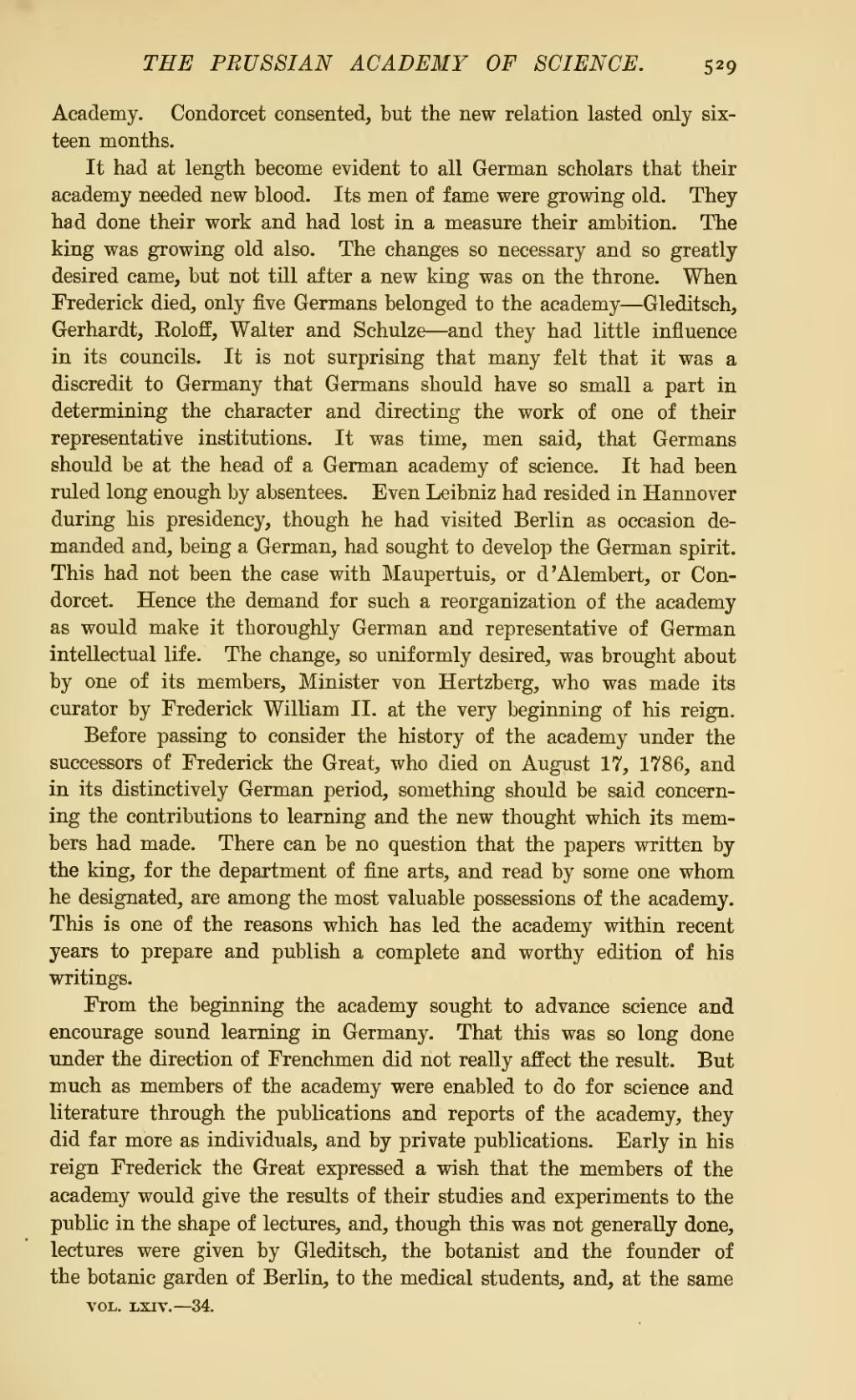Academy. Condorcet consented, but the new relation lasted only sixteen months.
It had at length become evident to all German scholars that their academy needed new blood. Its men of fame were growing old. They had done their work and had lost in a measure their ambition. The king was growing old also. The changes so necessary and so greatly desired came, but not till after a new king was on the throne. When Frederick died, only five Germans belonged to the academy—Gleditsch, Gerhardt, Roloff, Walter and Schulze—and they had little influence in its councils. It is not surprising that many felt that it was a discredit to Germany that Germans should have so small a part in determining the character and directing the work of one of their representative institutions. It was time, men said, that Germans should be at the head of a German academy of science. It had been ruled long enough by absentees. Even Leibniz had resided in Hannover during his presidency, though he had visited Berlin as occasion demanded and, being a German, had sought to develop the German spirit. This had not been the case with Maupertuis, or d'Alembert, or Condorcet. Hence the demand for such a reorganization of the academy as would make it thoroughly German and representative of German intellectual life. The change, so uniformly desired, was brought about by one of its members, Minister von Hertzberg, who was made its curator by Frederick William II. at the very beginning of his reign.
Before passing to consider the history of the academy under the successors of Frederick the Great, who died on August 17, 1786, and in its distinctively German period, something should be said concerning the contributions to learning and the new thought which its members had made. There can be no question that the papers written by the king, for the department of fine arts, and read by some one whom he designated, are among the most valuable possessions of the academy. This is one of the reasons which has led the academy within recent years to prepare and publish a complete and worthy edition of his writings.
From the beginning the academy sought to advance science and encourage sound learning in Germany. That this was so long done under the direction of Frenchmen did not really affect the result. But much as members of the academy were enabled to do for science and literature through the publications and reports of the academy, they did far more as individuals, and by private publications. Early in his reign Frederick the Great expressed a wish that the members of the academy would give the results of their studies and experiments to the public in the shape of lectures, and, though this was not generally done, lectures were given by Gleditsch, the botanist and the founder of the botanic garden of Berlin, to the medical students, and, at the same

